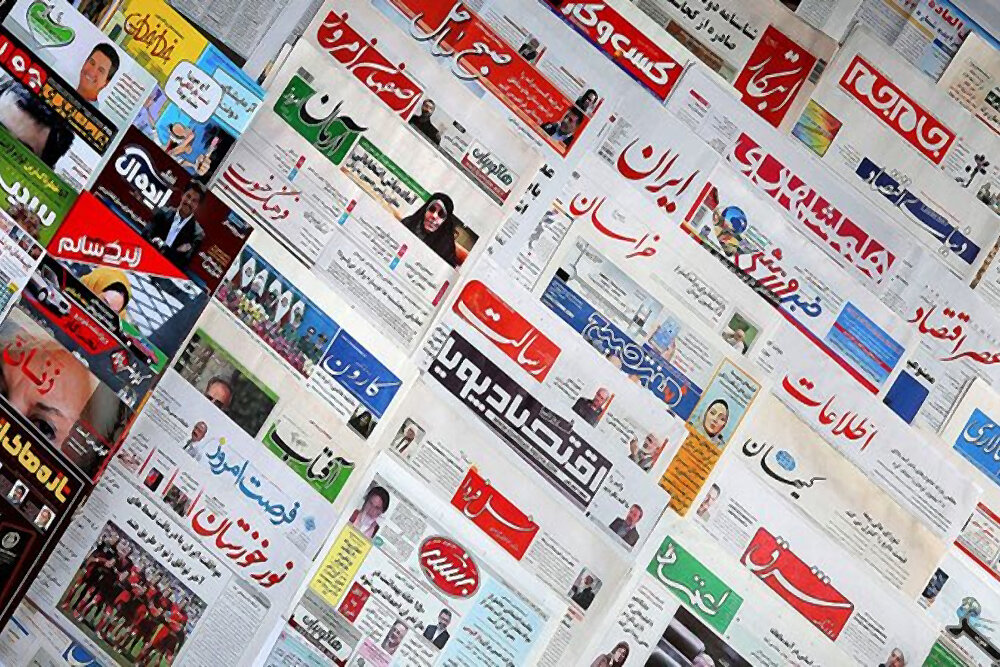Israel's fear of Qaani's increasing authority

About forty months after appointment of Ismail Qaani, the proud general of Islam, as the commander of the Quds Force, not only the path of martyr Lt. Gen. Qassem Soleimani is continuing, but also the path has now become more successful, Kayhan wrote in its editorial.
It is based on this achievement that an Israeli media outlet recently wrote: "Silent general" is strong in actions and has succeeded to bring the position of the resistance forces in Yemen, Iraq, Syria and Palestine to the point of no return. The media do not have positive approach toward such acknowledgment, because these confessions originate from enmity and intended to provoke others. Apart from these statements, the reality is that Soleimani's path continues powerfully in Iran and the region, and General Qaani's successes are in no way less than the successes of General Soleimani.
Shargh: Psychological game or real process?
In a commentary, Shargh addressed the JCPOA issue. It wrote: While most analysts believe the Biden government is following the policy of "no agreement, no crisis", they say that there are signals in the media about the possibility of activation of the trigger mechanism again to return the Security Council resolutions against Iran. Ali Vaez, the Iran project director in the International Crisis Group, pointed to this issue in a tweet on Saturday. He wrote: "Last week, three European countries invited 10 elected members of the UN Security Council to inform them from consultations on the use of the trigger mechanism of Resolution 2231 to return the UN sanctions if Iran crosses the nuclear red lines." Vaez's claim is worth analyzing from two aspects. In fact, either the holding of such a meeting can be the beginning of the trigger mechanism activation or his claim should be considered as a diplomatic rhetoric and a psychological warfare against Tehran.
Vatan-e-Emrooz: Cooperation to deport America
Vatan-e-Emrooz discussed Iran-Iraq relations. It wrote: There are many issues between Iran and Iraq due to civilizational, cultural and economic interests and connections of the two countries. In fact, the scope of cooperation between them can expand to all different fields, including science, education, culture, media and art.
According to the emphasis of the wise Leader of the revolution on the previous agreements, it is definitely possible to ink new agreements based on the previous ones and expand them. But one of the important points that must be noticed and discussed by the authorities in Tehran and Baghdad is expelling foreign forces that have taken root in some parts of Iraq.
Arman-e-Emrooz: Trusting Aliyev, at what price?
In a commentary Arman-e-Emrooz discussed the relations between Tehran and Baku. It said: After a news was published that two members of the Hosseiniun movement in Iran had been detained in Iran, some political activists in the Republic of Azerbaijan called the extradition of these people as a sign of Iran’s goodwill; but some others believe that the experience of relations with the northern neighbor has shown that even a step back by Tehran, will prompt Baku to take more hostile actions. Considering the current efforts of the Baku government that is seeking hurriedly to get closer to Israel, Tehran still trusts the words of Aliyev. The question here is, what will be the result of trusting Elham for Iran?
Analysts also believe that Azerbaijan's actions and positions in recent months are intended to put pressure on Iran to agree with creating a corridor known as Zangezur, because constructing this corridor will erase the historical border between Iran and Armenia. Iran has clearly warned against changing the borders and geography of the region and has declared its opposition to creating such land route, and this position has deeply displeased the authorities in the Republic of Azerbaijan.
Iran: Importance of Raisi's trip to Syria
the Iran newspaper discussed the visit of the president of Iran to Syria, which will take place Wednesday (today). It wrote: Syria's return to the Arab League and the official invitation of King Salman bin Abdulaziz, the King of Saudi Arabia, to Bashar Assad to participate in the meeting of Arab leaders in Riyadh shows that Syria is regaining its influential role in the Arab world. Syria as an important member of the resistance axis, will now be able to form a large front against the Zionist regime. This invitation which will be held for the first time after 12 years, has been made following the agreement between Iran and Saudi Arabia to restore ties. Mr. Raisi's trip to Damascus will be important to examine the conditions for Syria's reconstruction and the country's return to regional equations. Syria is considered the strategic depth of the Islamic Republic of Iran.
Leave a Comment